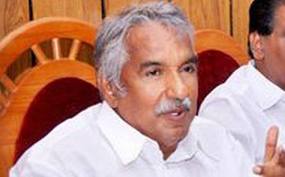
Thiruvananthapuram, July 25: With the Kerala assembly on Wednesday passing the Right to Service Bill, 2012, Chief Minister Oommen Chandy has kept his promise of making available services to the people within a specified time.
Thirteen specified government services come under the ambit of the new law.
These are issue of certificates of birth and death; denomination of caste, income and domicile; electricity connection to households and commercial shops; domestic water connections and issue of ration cards.
The other services are receipts to complaints filed with the police; issue of a copy of the First Information Report; police intervention in grievous crimes; time-bound verification of passport and employment status; issue of copy of post-mortem report and releasing of vehicles under custody.
The law guarantees delivery of specified services within a stipulated time period and if this does not happen, a penalty will be imposed on the official concerned.
People can now avail these services at offices of concerned government departments, local self-government institutions besides public sector undertakings.
The assembly had taken up the Right to Service Bill for discussion on Tuesday. It was to be discussed on Wednesday too.
But with the opposition up in arms over another issue and the assembly facing chaos, Speaker G Karthikeyan quickly finished the listed business for the day.
The assembly session ended on Wednesday with Karthikeyan terming the session as a historic one.





Comments
Add new comment